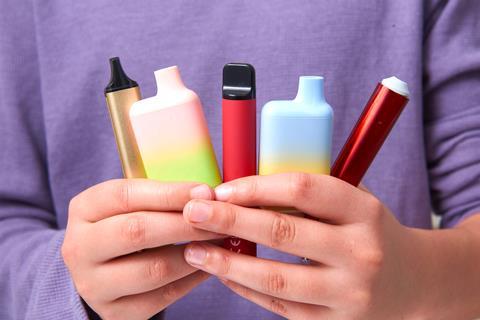
Close to a quarter of shops selling vapes have illegal disposables available to buy, an investigation has found.
Secret shoppers recruited by online nicotine product retailer Haypp visited vape stores, convenience retailers and supermarkets in nine major cities, finding 23% were still selling disposable vapes, which were outlawed at the start of June.
Glasgow and London had the highest rate of offenders among the 48 stores visited. Birmingham, Nottingham and Sheffield all had several shops willing to sell disposables.
Independent vape stores breached the ban most, “yet in Birmingham, one local outlet of a major national convenience store chain was caught selling a disposable vape to a mystery shopper” Haypp said.
The undercover investigation found that several of the retailers that said they would sell disposables, would only do so “by the box, not individually”. Others would only accept cash for the now-illicit products and would not provide a receipt.
“Banning disposable vapes was always going to lead to black market activity by unscrupulous retailers. It will require a substantial amount of resources to enforce this ban,” said Markus Lindblad, head of external affairs at Haypp.
Industry sources suspect sales of the outlawed devices will continue for some time.
“There’s both what’s still in the warehouses in the UK and the Chinese producers, today, still pushing them into the country to anyone that can pay for them,” an industry source said.
A separate consumer survey by Haypp found that 34% of vape users would consider buying a disposable vape despite the ban. Analysis of sales data by Talysis found £1m worth of disposable vapes were sold by convenience stores in the first week of the ban.
Single-use vapes have been illegal to sell since 1 June. Enforcement is led by each local authority’s Trading Standards teams. If caught, Trading Standards teams in England can apply civil sanctions to a retailer in the first instance, such as a stop notice and £200 fine. Repeat offenders can be prosecuted and receive an unlimited fine or prison sentence of up to two years.
Several raids and crackdowns have been launched since the ban by local authorities and police forces. Last month, Northamptonshire Police seized 1,734 disposable vapes from a town centre store as part of a joint operation with Trading Standards, but said “it was good to see that most of the retailers visited were fully compliant with the new laws”. More than 2,000 disposable vapes were seized from five shops in Kent in the weeks following the ban, as part of a county-wide crackdown.
Earlier this month, Barking and Dagenham Trading Standards said it had seized almost 1,300 illegal vapes since the ban came into effect.
The outlawing of the sale of disposable vapes was announced in January last year, and had been due to come into effect in April this year. The current government extended this to June. Nevertheless, the Association of Convenience Stores said late last year it was “still a challenging timetable for retailers and their supply chains”.
Many in the vaping sector feared disposable users would turn to the black market following the ban. Earlier this month, the ACS said responsible retailers were reporting a “major hit” to category sales since the ban, “so it’s not unreasonable to assume that those people have either stockpiled or are finding disposables elsewhere”.
The ban had, for now, “created more problems than solutions” it added.
Lindblad told The Grocer the vape stores performed worst in the secret shopper investigation because “a lot had taken the opportunity to buy a big volume of disposable vapes from China and act as cash & carries and distributors. So they have a lot in stock and it’s now a problem for them.
“While consumers might be tempted to buy disposable vapes on the black market, we urge them not to,” he added, “If they are not worried about the legal consequences, they should be worried about their health, as many of these products could be counterfeit, untested and unsafe.”








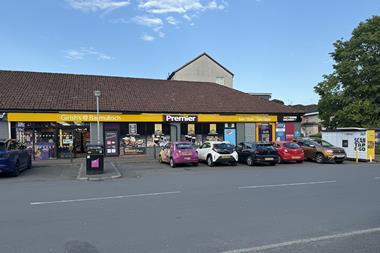
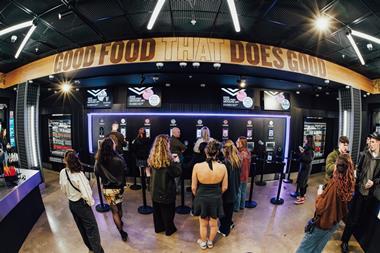
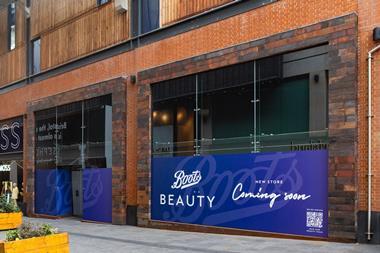
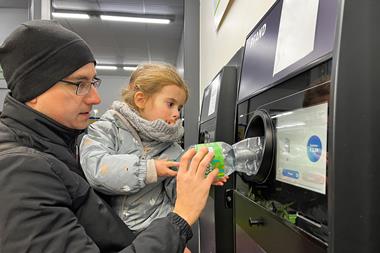
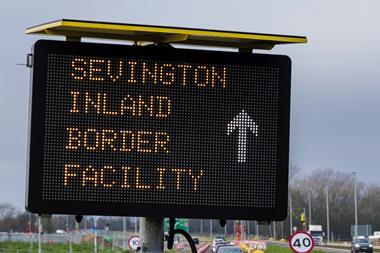





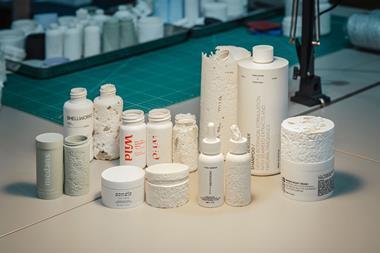
No comments yet